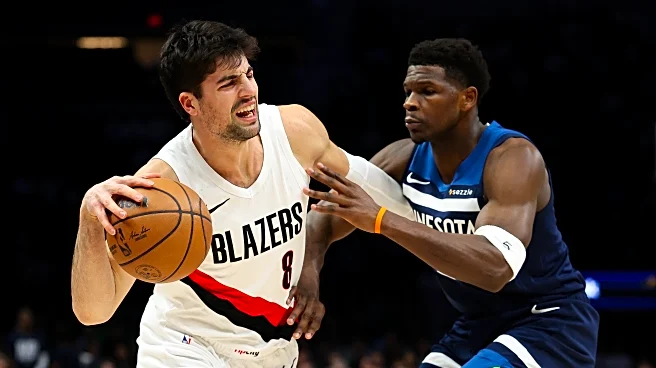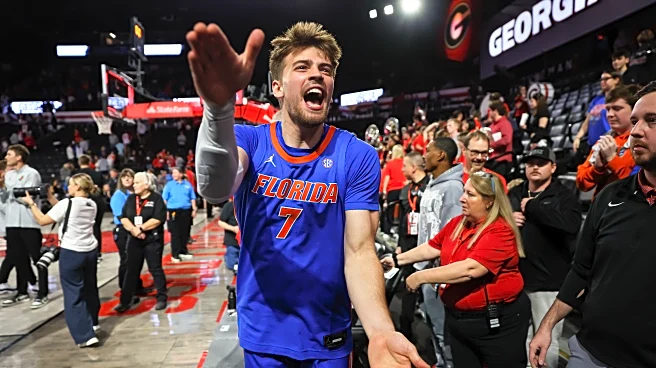What is the story about?
What's Happening?
The fragrance industry is experiencing a notable increase in the popularity of food-scented perfumes, often referred to as 'gourmand' fragrances. According to market research firm Mintel, this trend is potentially linked to the rising use of weight-loss medications such as Ozempic, Wegovy, and Mounjaro. These medications, known as GLP-1 drugs, are associated with appetite suppression, which may drive consumers to seek sensory experiences like food-inspired scents. The launch of dessert-themed fragrances has surged by 24% in the past year, with younger consumers showing significant interest. Notable figures in the industry, such as Sabrina Carpenter, have released gourmand perfumes, further fueling this trend.
Why It's Important?
The growing interest in gourmand fragrances highlights a shift in consumer behavior, particularly among younger demographics. This trend could have significant implications for the fragrance market, which is projected to grow annually by 3.3% by 2025. As consumers increasingly seek mood-boosting and indulgent experiences, fragrance brands may capitalize on this demand by expanding their offerings of sweet, food-inspired scents. This shift also reflects broader societal trends towards sensory stimulation and personal indulgence, potentially impacting marketing strategies and product development within the beauty and personal care industries.
What's Next?
As the popularity of gourmand fragrances continues to rise, fragrance brands are likely to explore new scent profiles that cater to the appetite-suppressing effects of weight-loss medications. This could lead to an increase in product launches and marketing campaigns targeting consumers interested in sensory experiences. Additionally, the trend of 'scent layering,' popularized on platforms like TikTok, may further drive sales of complementary scented products, enhancing the overall fragrance experience for consumers.
Beyond the Headlines
The intersection of fragrance trends and weight-loss medication use raises interesting questions about consumer psychology and the role of sensory experiences in lifestyle choices. As individuals seek to balance health goals with personal indulgence, the fragrance industry may play a unique role in providing non-caloric sensory satisfaction. This development also underscores the influence of social media in shaping consumer preferences and driving market trends.


















